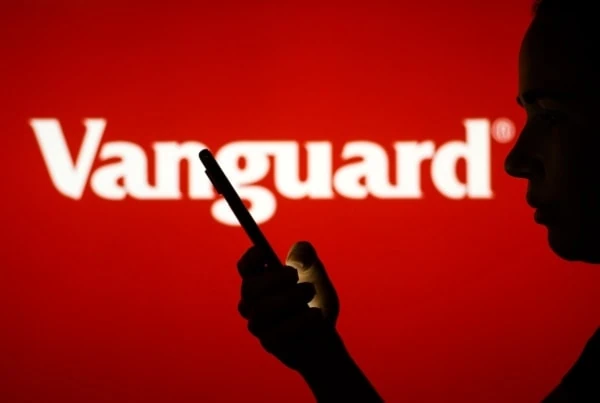Giving young children financial gifts is a great way to help them with the expenses they’ll face as they age.
However, cash is easily spent right away. And even when it isn’t spent, money tucked into a piggy bank or standard savings account loses value thanks to inflation.
If you want your gift’s value to grow, it’s best to invest the money. But a child can’t open a brokerage account, so an adult must open a custodial account where a child’s capital can be invested. That’s where Uniform Transfers to Minors Act (UTMA) accounts come into play.
But most people aren’t familiar with UTMA accounts and have many questions about them. What precisely is an UTMA account? How are UTMA and Uniform Gifts to Minors Act (UGMA) accounts different? Who can open a custodial account for a child? What can you use a UTMA account for? Are UTMA accounts taxable?
I’ll provide answers to these questions, and more, below.
Related: Best Custodial Accounts: How to Start Investing for Kids
What Are Custodial Accounts?
Before zeroing in on UTMA accounts, let’s talk a bit about custodial accounts for minors in general.
A custodial account is a financial account controlled by a custodian for a beneficiary (e.g., a minor). Any adult can set up a custodial account for a child. Most commonly, parents will open custodial accounts for their children, but grandparents, other family members, godparents giving a baptism gift, or even friends can open one, too.
Custodial accounts set up for a minor are managed by the custodian for the benefit of the child. After the account is opened, the custodian funds the account and chooses investments (e.g., stocks, bonds, mutual funds, real estate, etc.). The custodian must then manage the account in ways that are in the best interest of the child beneficiary. Multiple people can contribute to the account, but only the custodian chooses how the money is invested and used.
As soon as money is added to a custodial account for a minor, it legally belongs to the child. The custodian can withdraw money at any time, as long as it is used for something that benefits the child. Custodians can’t use the money on themselves or for other children. Once the child reaches the age of majority (which varies from state to state), he or she takes control of the account assets.
Custodial accounts make it simple to give financial gifts to children without having to worry about the money being spent on frivolous “teenager stuff.” They are also a great way to introduce children to investing and teach your kids money management skills.
All you need to set up the child’s brokerage account is basic information, such as the name, birthday, and Social Security number.
There are a variety of financial institutions where you can open a custodial account without being charged any account fees or just have minimal fees.
While the best custodial accounts have low to no account fees, keep in mind that there might be an initial deposit minimum and a minimum account balance that needs to be maintained.
A small birthday gift from a relative might not be enough to get started or to make the account worth it after deducting fees and may be better suited to a savings account.
Related: Best Godchild Gifts With a Financial Twist
Where Can I Open a Custodial Account? Try an Acorns Early Account
- Available: Sign up here
- Price: Acorns Premium: $12/mo. (Required for Acorns Early)
Acorns offers a custodial brokerage account (Acorns Early) for parents interested in opening an investment account for their child, made available through the Acorns Premium tier.
Acorns Early offers investment portfolios of various risk levels for kids, so you can feel confident in the account you’re opening up on one of the best stock trading apps for beginners for your little one.
This micro-investing app can be a great way to teach minors how to invest money. And the best part about Acorns? It doesn’t require any minimum deposit to get started and allows you to contribute money on a regular basis.
One of the best ways to invest $1,000 for your child is in a custodial account like Acorns Early. Read more in our Acorns review.
- Acorns allows you to sign up for investment, retirement, and checking accounts for you and your family, learn how to earn more money, and grow your investing knowledge.
- Famous for investing spare change automatically through Round-Ups, this all-in-one financial app helps younger generations start investing earlier.
- Invest in expert-built portfolios made up of diversified ETFs.
- Silver tier includes perks such as a 25% match on Acorns Earn rewards (up to $200/mo.), generous APYs on Checking and Emergency Fund, and live Q&As with investing experts.
- Gold tier includes perks such as a 50% match on Acorns Earn rewards (up to $200/mo.), $10,000 in life insurance, picking individual stocks for your portfolio, a free Acorns Early account, and Acorns Early Invest custodial accounts for children with 1% contribution matches.
- Earn even more with Later Match: Acorns will match up to 1% (Silver) or 3% (Gold) of all new IRA contributions in your first year.*
- Special offer: Get a free $20 bonus investment when you sign up with our link and start making recurring investments.**
- Robo-advisor with affordable fees (on larger portfolios)
- Fixed fee model
- Round-ups
- FDIC/SIPC insurance
- IRA match (Silver and Gold)
- High fixed fees for small balances
- Limited investment selections
- Must subscribe to Gold for any self-directed investing options
Related: How to Open a Brokerage Account for a Child
What Are UTMA Accounts (And How Do They Differ From UGMA Accounts)?
There are two main types of custodial accounts that can be opened for a child: UTMA accounts and UGMA accounts. However, even though brokers often advertise both types of accounts (sometimes simply referring to “UGMA/UTMA accounts”), you can’t open a new UGMA custodial account anymore if you live in any of the 50 U.S. states or the District of Columbia (although you can still open a new UGMA account in Guam). So, in general, even if you go with a broker that advertises UGMA accounts, you’ll likely end up opening a UTMA account.
UGMA and UTMA accounts are very similar, but UGMA accounts are a bit more limited in the type of property they can hold. For instance, you can only hold financial assets such as cash, stocks, bonds, mutual funds, exchange traded funds (ETFs), life insurance policies, and the like in a UGMA account. However, you can hold pretty much any type of property in a UTMA account, including real estate, collectibles, fine wine or art, motor vehicles, and more.
UTMA accounts also come with greater liability protection than UGMA accounts if there’s a claim tied to custodial property. With a UTMA account, the minor isn’t liable for a claim unless he or she is personally at fault. Custodians avoid liability unless they’re at fault or fail to reveal the custodial relationship when entering into a contract.
There are also differences in how the account can be funded. Only standard gifts of cash or other financial assets can usually be made to a UGMA account. But with UTMA accounts, other asset transfers are allowed, such as transfers from trusts, estates, or guardianships. A UTMA account can even be funded by the payment of debts owed to a minor.
Related: UTMA vs UGMA: Differences Between these Custodial Accounts
What Can You Do With a UTMA Account?
One of the best things about a UTMA account is that it offers an enormous amount of flexibility. The custodian can use funds in a UTMA account for almost anything that benefits the minor beneficiary.
Educational Expenses
One popular reason to open a UTMA account is to save for educational expenses. You’ll typically have more investment options with a UTMA account when compared to other common tax-advantaged vehicles used to save for education costs, such as 529 plans and Coverdell education savings accounts (ESAs).
Plus, If you aren’t confident your child will go to college, choosing an UTMA account is often a smart decision because, unlike 529 plans or Coverdell ESAs, there are no penalties if UTMA funds are eventually used for non-educational expenses. That makes UTMA accounts a great alternative to 529 plans for some people.
There are downsides to using UTMA accounts for education costs, though. For example, since UTMA accounts are taxable investment accounts, you’ll miss out on the tax benefits associated with 529 plans and Coverdell ESAs.
In addition, a UTMA account can negatively affect the beneficiary’s financial aid eligibility or the amount of federal student aid he or she qualifies for if there is a significant amount in the account. That’s because the beneficiary technically owns funds and assets in a custodial account, so 20% of the account is treated as “available” for college funding, whereas only up to 5.64% would be treated in such a way if the account was owned by the beneficiary’s parents.
You can use the money for educational purposes, but if you know that is the plan, consider using 529 plans or as well.
Related: UTMA vs. 529 vs. Coverdell ESA [College Savings + More]
General Expenses For a Minor
A custodian can also use UTMA funds to pay for the minor beneficiary’s piano lessons, travel, camp, equipment for a sports team, car, and more. Again, the potential uses are almost endless—as long as the money is used solely for the child’s benefit.
General Expenses For an Adult
UTMA money can be left alone so the child can decide how to use it once he or she is an adult.
As an adult, the beneficiary might decide to use some of the money to get a car, go abroad, get an apartment, or make a house down payment. Once the minor reaches the age of majority, they gain complete control of any money or assets in a UTMA account.
Retirement Savings
Some parents might want to set up a UTMA account for their child’s retirement. However, as with using UTMA accounts to save for college, there are trade-offs with this approach. For example, when compared to an individual retirement account (IRA), the child might ultimately benefit from the flexibility of a UTMA account. If the money is needed before age 59½ for a new home, wedding, or other major expenses, there won’t be any penalty for using the UTMA funds for those costs (as there might be with an IRA).
The contribution limits associated with IRAs also don’t apply to a UTMA (or UGMA) account … although there could be gift tax consequences if you put too much in a custodial account in one year (more on that in a bit).
On the other hand, money in a UTMA account won’t grow on a tax-deferred or tax-free basis, as it would in an IRA. Plus, some of the earnings from a UTMA account might be taxed at the child’s parents’ federal tax rate, which is presumably higher than the child’s tax rate (more on that in a minute, too).
YATI Tip: Kids can’t open a “regular” Roth IRA until they have a job, but custodial Roth IRA accounts can be opened for any child at any time. While not a UTMA or UGMA account, they’re still managed by an adult custodian until the beneficiary child reaches the age of majority. Just remember that once the child takes control of the account, money in the account can generally be withdrawn at any time and used for any purpose he or she chooses … so the money might not make it to retirement.
Related: Retirement Saver’s Tax Credit: What Is It, How Much, Who’s Eligible + More
Taxation of UTMA Accounts
UTMA accounts are taxable investment accounts that don’t offer the types of tax benefits available with certain tax-advantaged accounts like 401(k) plans, 529 plans, and IRAs.
In fact, certain negative tax impacts are possible with the use of UTMA accounts.
Contributions Subject to Annual Gift Tax Limits
There is no limit on how much you can put into a UTMA account each year, but there might be federal gift and estate tax consequences if you put too much into an account during the year. That’s because contributions to a UTMA account are considered gifts.
For 2024, an individual can contribute up to $18,000 to a UTMA account for any one beneficiary with no gift tax issues ($19,000 in 2025). If you’re married, your spouse can also contribute an additional $18,000 to the same beneficiary (for a total of $36,000 in 2024 and $38,000 in 2025). The limit is adjusted annually for inflation, so it can increase over time.
If your gifts to any one beneficiary during the year exceed the annual gift tax limit, you must report the gifts to the IRS.
The excess amount is also counted against your lifetime gift tax exemption, which is $13.61 million for 2024 ($26.22 million for married couples). These figures increased for 2025, becoming $13.99 million for individuals and $26.98 million for married couples.
As an illustration for how this comes into play, imagine you contributed $20,000, $2,000 would be deducted from your lifetime exemption amount in 2024 ($1,000 in 2025). Federal gift taxes are due only if the total of all reported gifts is more than the lifetime exclusion amount. (The lifetime gift tax limit is also adjusted annually for inflation.)
Fortunately, since the lifetime gift tax exemption is so high, most people don’t have to pay the federal gift tax.
YATI Tip: Excess contributions are also applied toward your federal estate tax exemption, which is the same amount as the lifetime gift tax exclusion.
Taxation of Earnings At Parents’ Tax Rate
Thanks to the “kiddie tax,” earnings from a UTMA account over a certain amount can be taxed at a higher rate.
There is a three-stage progression for the taxation of unearned income from a UTMA account. Earnings start tax-free, then are taxed at the child’s rate, and then are taxed at the minor beneficiary’s parents’ tax rate.
For the 2024 tax year, the kiddie tax kicks in if a child’s unearned income exceeds $2,600 ($2,700 in 2025). If the kiddie tax applies for 2024, the child’s unearned income is taxed as follows:
- $0 through $1,300 of unearned income is tax-free ($0 through $1,350 in 2025)
- $1,301 through $2,600 is taxed at the child’s rate ($1,350 through $2,700 in 2025)
- Over $2,600 is taxed at the parents’ rate ($2,700 in 2025)
Only children of a certain age are subject to the kiddie tax. For the kiddie tax rules to apply, the child must either be:
- 17 years old or younger at the end of the tax year
- 18 years old at the end of the tax year and didn’t have earned income that was more than half of his or her support
- A full-time student 19 to 23 years old at the end of the tax year and didn’t have earned income that was more than half of his or her support
YATI Tip: If a dependent child only has unearned income from interest and/or dividends, that income can be reported on a parent’s tax return if certain other conditions are met. In that case, the kiddie tax rules don’t apply.
Related:




![What Is a UTMA Account? [Investing for Your Child’s Future] 1 what is a UTMA account](https://youngandtheinvested.com/wp-content/uploads/what-is-a-UTMA-account-584x389.webp)
![What Is a UTMA Account? [Investing for Your Child’s Future] 2 custodial account parent child investing savings](https://youngandtheinvested.com/wp-content/uploads/custodial-account-parent-child-investing-savings.webp)
![What Is a UTMA Account? [Investing for Your Child’s Future] 3 acorns signup](https://youngandtheinvested.com/wp-content/uploads/acorns-signup-new2.webp)
![What Is a UTMA Account? [Investing for Your Child’s Future] 4 Acorns | Invest, Earn, Grow, Spend, Later](https://youngandtheinvested.com/wp-content/uploads/acorns-logo-transparent-symbol.webp)
![What Is a UTMA Account? [Investing for Your Child’s Future] 5 parent child investing UGMA UTMA](https://youngandtheinvested.com/wp-content/uploads/parent-child-investing-UGMA-UTMA.webp)
![What Is a UTMA Account? [Investing for Your Child’s Future] 6 education graduation 529 esa college teen young adult](https://youngandtheinvested.com/wp-content/uploads/education-graduation-529-esa-college-teen-young-adult.webp)
![What Is a UTMA Account? [Investing for Your Child’s Future] 7 calculator tax bracket](https://youngandtheinvested.com/wp-content/uploads/calculator-tax-bracket.webp)


![6 Best Money Market Funds [Protect Your Savings, 2026] 16 a businessman protects his savings in the safe.](https://youngandtheinvested.com/wp-content/uploads/money-market-funds-safe-safety-security-1200-600x403.webp)
